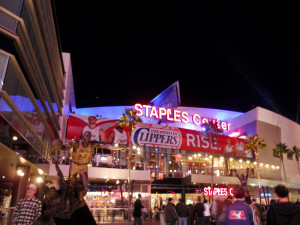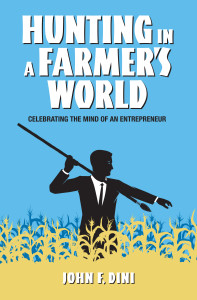Many business owners I know are troubled by the NBA’s insistence that Donald Sterling must sell the Los Angeles Clippers, and can do it only in a manner and to whom the league approves.
Mr. Sterling has personally been banned from the league for life, but the prohibition doesn’t extend to his family. However, the NBA is making plain that he will not be free to merely restructure or renounce ownership personally, and must sell to an unrelated third party without delay. The nine-figure tax implications, along with the degradation of any presumed price negotiating power for the Sterling family, could make his the first half-billion dollar faux pas in history.
Whether the bylaws of the NBA allow this is unclear, but the leverage isn’t in the bylaws. It is in the inherent weakness that comes with any customer or vendor concentration in business. Sterling accepted a relationship with a larger and more powerful entity than his in return for growing revenues. Now he is paying the piper.
 The Clippers have been mismanaged for decades. For non-basketball fans, the team’s rise from perennial laughing stock to title contender began when the league summarily voided an arms-length agreement with Sterling’s cross town rivals (and perennial title contenders) the Los Angeles Lakers, and instead sent Chris Paul (a top echelon player) to the Clippers.
The Clippers have been mismanaged for decades. For non-basketball fans, the team’s rise from perennial laughing stock to title contender began when the league summarily voided an arms-length agreement with Sterling’s cross town rivals (and perennial title contenders) the Los Angeles Lakers, and instead sent Chris Paul (a top echelon player) to the Clippers.
Mr. Sterling didn’t protest the fairness of the move. Nor has he complained about his share of the league’s $7.5 billion television contract, a collective bargaining agreement that increased his margins, or national sponsorship contracts with major consumer brands. The Clippers share (with the Lakers) an arena with 160 luxury suites. The league needed them to sell more tickets. The game-to-game disparity in gate revenue percentages for visiting teams playing against both residents of the same venue was a sore point with other owners, so the NBA stepped in to fix Mr. Sterling’s team for him. Now they are taking it away.
In a small business, one large customer or vendor can change the future of your company. We all say that we don’t want to be dependent, but when your largest customer wants to send you a lot more business, or a major vendor wants to support your growth, “no thanks” isn’t usually the answer. You can either accede to their rules of engagement, or face life without them.
Hunting in a Farmer’s World has been named the National Silver Medal  Award winner for business books by the Independent Publishers Association, and is a nominee for smallbiztrends.com Small Business Book of the Year. It was also a finalist in the Independent Excellence Awards, Honorable mention at the San Francisco Book Festival, and recently reviewed in the Huffington Post. Thank you all!
Award winner for business books by the Independent Publishers Association, and is a nominee for smallbiztrends.com Small Business Book of the Year. It was also a finalist in the Independent Excellence Awards, Honorable mention at the San Francisco Book Festival, and recently reviewed in the Huffington Post. Thank you all!

4 Responses to They Who Giveth Can Taketh Away